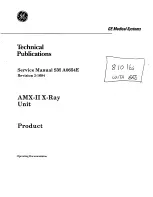
38
Intelect® Neo Clinical Therapy System
Iontophoresis
Iontophoresis is the introduction of ionizable drugs through intact skin by the
administration of continuous, direct electrical current into the tissues of the
body. The medicinal substance must be placed under the electrode pole with
the same charge.
The following list provides the typical dosage for common medications-
solutions used in iontophoresis:
Medications – Solutions:
• Acetic acid (-): calcium deposits, calcific tendinitis. 2-5% solution
• Calcium chloride (+): skeletal muscle spasm. 2% aqueous solution
• Dexamethasone (-): anti-inflammatory; chronic myofascial trigger points
4mg/ml aqueous solution
• Glycopyrronium Bromide (+): hyperhidrosis. 0.05% solution
• Hyaluronidase (+): edema; scleroderma. Reconstitute with 0.9% sodium
chloride to provide a 150µg/ml solution.
• Hydrocortisone (+): anti-inflammatory. 0.1-1% solution (ointment)
• Iodine (-): sclerotic effect on scar tissue. 5-10% solution (ointment)
• Lidocaine (+): local anaesthetic effect. 4% solution
• Lithium (+): gouty arthritis. 2% lithium chloride solution
• Magnesium sulphate (+): skeletal muscle spasm; myositis. 2% aqueous
solution or ointment
• Salicylate (-): muscle and joint pain (rheumatic diseases). 2-3% sodium
salicylate solution
• Sodium chloride (-): sclerotic effect on scar tissue. 1-5% solution
• Zinc oxide (+): open wounds, ulcers. 20% ointment.
NOTE:
Do not place electrode on open wound. Electrodes are NOT Sterile.
WAVEFORMS
















































